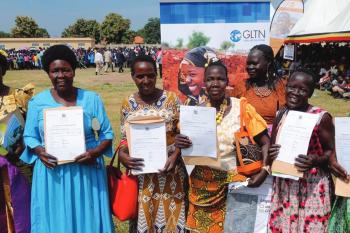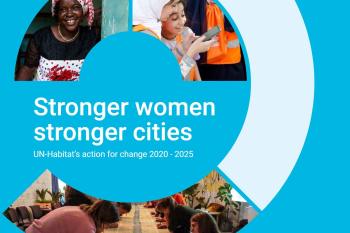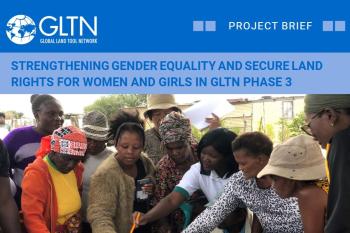
Read More
Gender Strategy for Land-at-Scale Uganda
Women’s Land Rights (WLRs) are fundamental human rights, foundational to gender equality and women’s dignity and instrumental in improving food security, effective climate action, poverty eradicati

Protecting women’s and men’s housing, land and property rights is an urgent matter calling for a coordinated effort of all stakeholders.
During crisis, securing women’s housing, land and property rights enables them to support societies to transition towards recovery and self-reliance, mitigating the negative impacts of conflict and fostering stronger relationships between people and institutions, crucial for state-building and peacebuilding efforts.
This pivotal role is recognised in the UN Security Council Resolution 1325 (2000). Women obtain access to, use of and control over housing, land and property through a variety of avenues. Some fall within the statutory, formal system, others within customary, informal or religious systems.
This requires land practitioners to be able to understand and navigate the implications of legal pluralism and identify and promote viable tenure options – both individual or collective – that can benefit the largest number of women (and men) in the shortest time, while offering enough protection from forced eviction and other hazards.
Drawing from the field experiences and research of UN-Habitat and the Global Land Tool Network’s partners in diverse fragile and conflict-affected contexts, the Training Guide explores the complexities of safeguarding women's access to housing, land and property and provides essential information, actionable insights and tools to empower land professionals and practitioners, regardless of their expertise level, to adopt a gender-responsive approach in their work.

Women’s Land Rights (WLRs) are fundamental human rights, foundational to gender equality and women’s dignity and instrumental in improving food security, effective climate action, poverty eradicati

This publication presents a summary of UN-Habitat’s gender equality impact over the past five years, in line with the Beijing reporting cycle.

GLTN’s institutional commitment to gender equality and secure land rights for women and girls has been at the core of its work since inception in 2006.